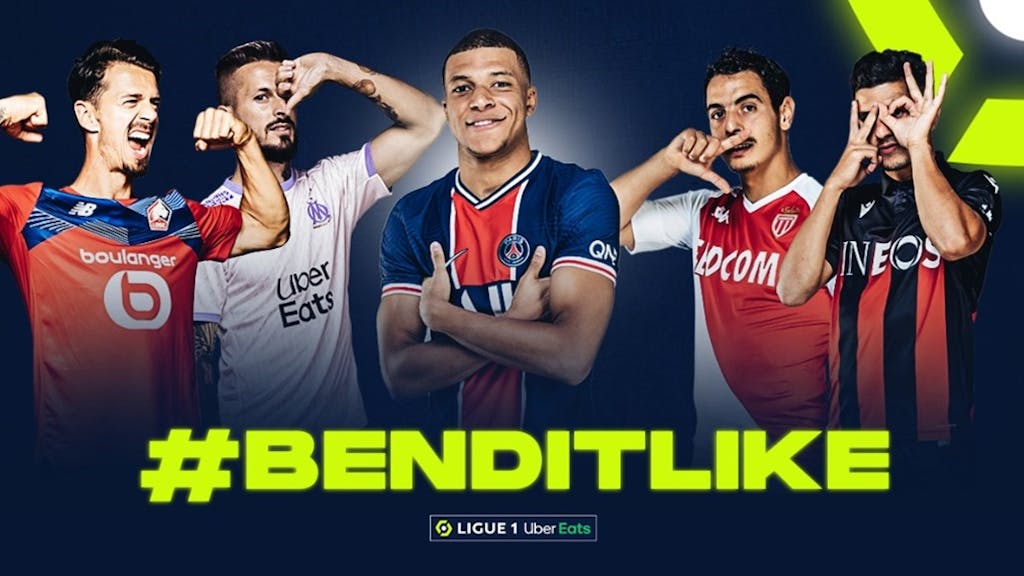France’s Professional Football League (LFP) has widened its tie-up with TikTok, the short-form video platform owned by Chinese technology group ByteDance, to drive further engagement with fans domestically and around the world.
Having attracted more than 1.1 million TikTok followers on the Ligue 1 Uber Eats account in the nine months since it launched, the LFP has now announced additional engagement plans on the platform.
These will include behind-the-scenes live streams at Ligue 1 matches, “Hashtag Challenges” with filters and special effects in the league’s colours and various in-app contests offering prizes to fans.
The first Hashtag Challenge (#jouelacomme or #BenditLike in English) was posted today (Wednesday), inviting TikTok users to imitate and share the celebrations of Ligue 1 players using a specially-developed filter. In addition, filters in the colours of each top-flight French club have been added.
Heightened engagement with TikTok is part of the LFP’s international digital growth plans. The league’s digital activity was ramped up over the Covid-19 lockdown period and the league approximately tripled its number of social media fans worldwide during the 2019-20 season.
Ligue 1 now has around 15 million social media fans or followers worldwide with approximately half of those coming outside of France. These are spread across 19 accounts in six different languages.
This includes its Facebook and Twitter accounts in five languages (French, English, Spanish, Portuguese and Arabic), its Instagram account, and its accounts on Weibo, WeChat, Toutiao and Douyin in China. The league’s French-language channel on YouTube currently has 1.62 million subscribers, with its international channel having attracted 302,000 subscribers.
Following an increased focus on content localisation, the league lays claim to speaking to 70 per cent of Ligue 1 Uber Eats fans in their own native language and plans to reach as close to 100 per cent as possible.
Further initiatives to drive up the social media following have included ‘gamification’ elements such as score prediction challenges and voting tools for the best team of the week or, for instance, campaigns in Brazil to vote for the best Brazilian player of the week.
Social media content and cross-posting agreements with the likes of 433 and WAVE.tv have also helped to boost the digital audience.
